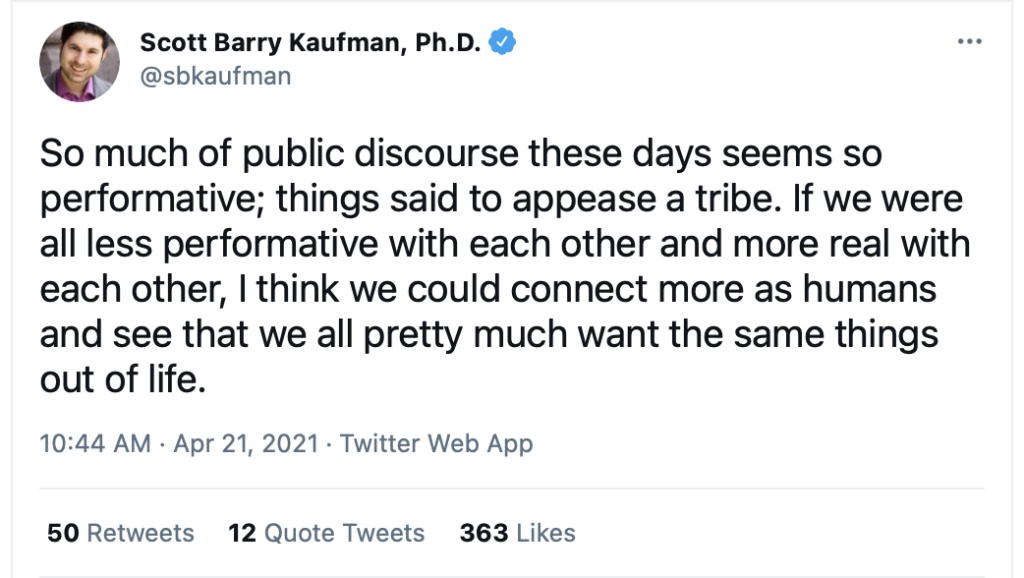Scott Barry Kaufman says this well.
I have this exact same thought many times every day. It’s like we are trapped in blue-dress-brown-dress argument every time we open our mouths.
One fruitful solution to this mess is to re-learn how to have conversations using Heterodox Academy’s HxA Way:
- Make your case with evidence.
- Be intellectually charitable.
- Be intellectually humble.
- Be constructive.
- Be yourself.
The above five points are merely the headings – the HxA Way is carefully thought out. Here’s a more detailed (yet succinct) description.
Then again, this solution of the HxA way assumes that both parties are interested in having a conversation, which is not the case with many of today’s tribally charged performative chants that only pretend to be conversations.
Conversations and performative chants look similar in that they both involve two people talking in the presence of each other. The way I distinguish the two is that to be a conversation, one or both parties is/are at least potentially open to changing the way they understand some aspect of the world. This is often extremely difficult to tell. And the likelihood that we are witnessing a meaningful conversation diminishes greatly as 1) more and more people actively participate as speakers, 2) one or more of the parties fail to accurately restate the other side’s position, 3) one of the sides refuses to give up the floor, or 4) voices get louder or more impassioned. In other words, one’s best shot at having a real conversation involves one-on-one conversation where people listen closely to each other’s words, restate those thoughts accurately and want their thoughts and world-view challenged–they both seek a new version of truth and neither seeks to “win” the interaction. The opposite of a conversation can be found in a religious sermon.
I’ll close with this quote by Nietzsche:
“Madness is rare in individuals—but in groups, parties, nations and ages it is the rule.”
—Beyond Good & Evil, Aphorism #156


